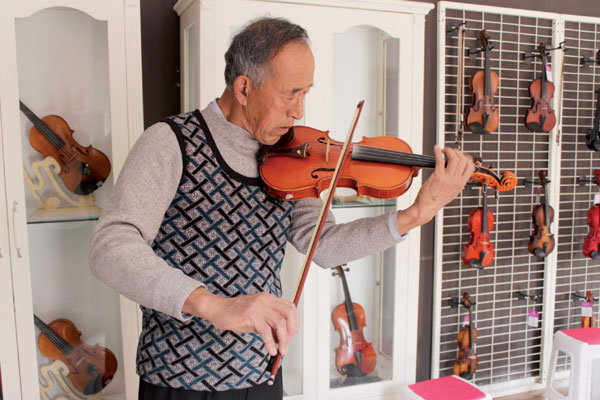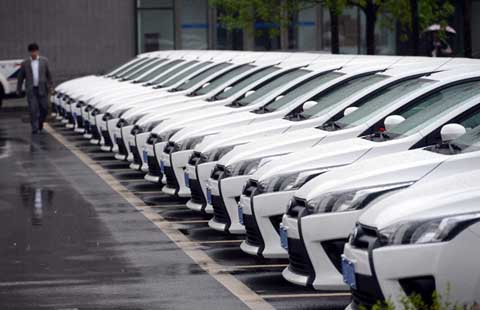Playing a different tune
By Zheng Jinran (China Daily) Updated: 2014-05-19 09:18
 |
|
A violin maker tests finished products. |
"The success indicates the promising future for Western musical instrument manufacturing and also provides new growth options and valuable industrialization tools for rural counties," Yu says.
Thanks to the pioneering role played by companies like Jinyin, there are now more than 51 companies making musical instruments, employing more than 5,500 workers. Some experts even liken Wuqiang to a musical instrument industry cluster.
|
 |

|
Wuqiang, however, has decided to further enhance its musical legacy by setting up a cultural industrial park to create a complete industrial system for musical instrument production, from research and design to maintenance, and also to be the first distribution center in China that combines production with marketing.
The local government has also announced a series of preferential policies such as rental concessions for three years and easier access to funds to attract more musical instrument manufacturing companies, Yu says.
Though preferential policies have been a major draw, several companies moved to Wuqiang to cash in on the natural synergies of industry concentration.
Sun Guangyou, who makes bottom and side plates for violins, was one of the entrepreneurs who relocated his factory from Harbin city in Heilongjiang province to Wuqiang last year.
He says that though it was easier to access necessary raw materials like wood in Harbin, the huge transportation costs made the whole business unviable. "Finished products had to be shipped frequently from Harbin to my customers, who were mostly in Hebei and southern provinces," Sun says.
"When I heard about the industrial park in Wuqiang, I decided to move in, so that I could be closer to my customers," he says, adding that his more-than-eight-year association with Jinyin Group was another motivator to move shop.
- Playing a different tune
- Creative juices flow with the Thames in London
- Concerns grow as real estate cool-down continues
- China says faster economic reforms needed
- Child models highlight Taiyuan Intl Auto Show
- China goes local to soften hit from property downturn
- Capitalizing on the sweeping new zeitgeist
- Top 10 careers for new graduates















